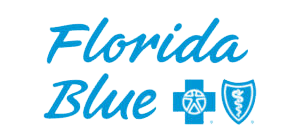Acceptance & Commitment (ACT) Therapy in Rome, Georgia

ACT Therapy in Rome, GA is growing in popularity. This approach helps people deal with challenging emotions and thoughts. It teaches skills to handle stress, anxiety, and depression.
Fairland Recovery Center’s ACT therapy in Rome, GA, focuses on accepting difficult feelings while taking steps toward valued goals. Instead of trying to change thoughts, ACT helps people change their relationships with them, which can lead to better mental health and recovery.
Our behavioral health therapists use methods like mindfulness. These skills help clients live more fully in the present. ACT aims to increase psychological flexibility and improve quality of life.
Understanding ACT Therapy
ACT therapy is a powerful approach that helps people cope with complex thoughts and feelings. It teaches skills to live a meaningful life based on personal values. ACT differs from other therapies in key ways and uses specific processes to promote change.
Fundamentals of ACT
ACT stands for Acceptance and Commitment Therapy. It’s a type of behavioral therapy that aims to increase psychological flexibility. ACT helps people accept what’s out of their control and commit to actions that improve their lives.
The main goal is to create a rich, full life while accepting the pain that inevitably goes with it. ACT teaches mindfulness skills to deal with painful thoughts and feelings effectively.
It encourages people to clarify their values and act toward their goals. This approach can help with many issues, including anxiety, depression, and chronic pain.
ACT Versus CBT
Acceptance and Commitment Therapy (ACT) and Cognitive Behavioral Therapy (CBT) are both evidence-based treatment approaches. While they share some similarities, they have distinct differences.
- CBT focuses on changing negative thoughts and behaviors.
- ACT, on the other hand, aims to change one’s relationship to thoughts and feelings.
- In CBT, people learn to identify and challenge unhelpful thoughts.
- Meanwhile, ACT teaches acceptance of thoughts without trying to change them. It emphasizes living according to one’s values rather than being ruled by thoughts and feelings.
Both approaches can be effective. The choice between ACT and CBT often depends on individual needs and preferences.
Key Principles and Processes
ACT uses six core processes to build psychological flexibility:
- Acceptance: Embracing thoughts, feelings, and life’s challenges without trying to change them.
- Cognitive defusion: Learning to step back and observe thoughts without getting caught up.
- Being present: Focusing on the here and now.
- Self as context: Viewing oneself as separate from thoughts and feelings.
- Values: Identifying what truly matters in life.
- Committed action: Taking steps toward valued goals.
These processes work together to help people live more flexibly and effectively. Our ACT therapists, located near the Atlanta metro area, teach these skills using techniques, including mindfulness exercises and metaphors, which is a person-centered approach.
Benefits of ACT for Mental Well-Being
ACT therapy helps people cope with difficult thoughts and emotions. It teaches skills to improve mental health and quality of life.
Addressing Anxiety and Depression
ACT can reduce symptoms of anxiety and depression. The therapy helps people accept uncomfortable feelings instead of fighting them. This often leads to less distress.
Through mindfulness exercises, people learn to focus on the present moment, which can interrupt cycles of worry and rumination. ACT also encourages action based on personal values, which gives people a sense of purpose and direction.
Some key ACT techniques for anxiety and depression include:
- Cognitive defusion: Seeing thoughts as just thoughts, not facts
- Acceptance: Allowing complicated feelings to be present without struggle
- Committed action: Taking steps toward meaningful goals
Managing Trauma and PTSD
ACT can be helpful for people dealing with trauma and post-traumatic stress disorder (PTSD). The therapy teaches ways to cope with painful memories and flashbacks. Patients learn to observe thoughts and feelings without getting caught up in them.
ACT emphasizes living in the present rather than dwelling on past events. This can reduce avoidance behaviors common in PTSD. The therapy also helps people reconnect with their values and engage in fulfilling activities.
Specific ACT strategies for trauma include:
- Mindfulness skills to stay grounded in the present
- Acceptance of difficult emotions without judgment
- Committed action to rebuild a sense of safety and trust
Addressing Anger Management
For anger management, ACT helps individuals develop mindfulness skills while incorporating elements of dialectical behavioral therapy (DBT) and eye movement desensitization and reprocessing (EMDR) to address underlying trauma triggers.
Through individual therapy and support groups, clients learn to accept their emotions while making committed actions toward behavioral change, often supported by motivational interviewing techniques to enhance their engagement in the therapeutic process.
Overcoming Mood Disorders
When treating mood disorders, ACT works as part of a comprehensive mental health services approach, combining mindfulness-based strategies with traditional psychotherapy methods.
Practitioners often integrate family therapy to create a supportive environment for recovery, while individual therapy sessions focus on developing psychological flexibility.
The combination of ACT with support groups provides clients professional guidance and peer support, creating a robust treatment framework that addresses immediate symptoms and long-term emotional regulation.
Handling Gender Identity
For individuals exploring gender identity, ACT provides a particularly valuable framework within mental health services, offering a safe space for self-exploration and acceptance.
Treatment often combines individual therapy sessions with support groups, where clients can work through their experiences in private and communal settings.
The integration of family therapy helps create understanding and support within the client’s immediate social circle, while motivational interviewing techniques help individuals navigate their journey confidently.
ACT’s emphasis on personal values aligns well with DBT skills, helping clients develop resilience while addressing any associated anxiety or depression through comprehensive psychotherapy approaches.
Fostering Compassion and Self-Esteem
ACT can boost self-esteem and foster self-compassion. The therapy encourages people to develop greater psychological flexibility. This allows for a kinder, more accepting view of oneself.
Patients learn to notice self-critical thoughts without believing them. They practice treating themselves with kindness, especially during difficult times. ACT also helps people identify and live by their core values. This can lead to a stronger sense of self-worth.
Key ACT concepts for building compassion and self-esteem:
- Self-as-context: Seeing oneself as more than just thoughts and feelings
- Values clarification: Identifying what matters in life
- Committed action: Taking steps aligned with personal values
ACT for Life Transitions and Stress
ACT therapy helps people handle life changes and tough emotions. It teaches skills to face challenges with flexibility and mindfulness.
Navigating Life Changes
ACT helps people adapt to life transitions like moves, new jobs, or relationship shifts. It focuses on accepting what can’t be changed and taking action where possible.
The therapy guides clients to:
- Identify personal values
- Set meaningful goals
- Practice mindfulness techniques
These skills help manage stress during significant changes. ACT also encourages people to be kind to themselves as they adjust.
Therapists may use exercises to build mental flexibility. This helps clients respond better to new situations. They learn to focus on the present instead of worrying about the future.
Coping with Loss and Grief
ACT supports those dealing with loss and grief. It helps people process painful emotions without getting stuck.
Key aspects include:
- Accepting difficult feelings
- Connecting with personal values
- Taking small steps forward
The therapy teaches ways to honor memories while still moving ahead. Clients learn to find meaning after loss.
ACT helps people face grief without avoiding it. This can lead to healing and personal growth. Therapists guide clients to be present with their emotions and make room for sadness and joy.
Specialized ACT Applications in Rome, GA
Acceptance and Commitment Therapy (ACT) is used to treat various mental health issues at Fairland Recovery Center. It helps people accept difficult thoughts and feelings while acting based on their values.
ACT for Substance Abuse and Addictions in Rome, Georgia
ACT can help people with substance abuse and addictions. It teaches skills to manage cravings and avoid triggers. Patients learn to accept urges without acting on them.
ACT focuses on living a meaningful life beyond addiction. It helps people identify their values and take steps toward them. This can give purpose and motivation for recovery.
Our licensed professional counselors (LPC) may use mindfulness to help patients notice thoughts about substance use without judgment. They also work on building a life worth living without drugs or alcohol.
Family Systems and Relationship Issues
ACT can improve family dynamics and relationships. It helps family members accept each other’s differences and communicate better.
In couples therapy, ACT teaches partners to be present with each other. They learn to listen without judgment and express their needs clearly. This can lead to deeper connection and understanding.
For parenting issues, ACT helps parents stay calm and respond thoughtfully to children’s behavior. It encourages flexibility in parenting approaches based on the family’s values.
We offer ACT in Rome, GA, for families and couples. These sessions can improve family members’ relationships and help them solve problems together.
Accessing ACT Therapy Services Near the Atlanta Metro-Area
Getting ACT therapy in Rome, GA, is easier than you might think. Our experienced ACT therapists at Fairland Recovery Center are here to help you build a more meaningful life. Contact us today at 770-797-7652 to schedule your initial consultation.
Fairland Recovery Center Services
-
Life Coaching in Rome, GA
-
Acceptance & Commitment (ACT) Therapy in Rome, Georgia
-
Motivational Interviewing (MI) Therapy in Rome, GA
-
Solution-Focused Brief Therapy in Rome, Georgia
-
Rational Emotive Behavior Therapy in Rome, GA
-
Relapse Prevention in Rome, Georgia
-
Holistic Drug Rehab in Rome, Georgia
-
Group Therapy in Rome, Georgia
-
Family Therapy in Rome, Georgia
-
EMDR Therapy in Rome, Georgia
-
Dialectical Behavioral (DBT) Therapy in Rome, Georgia
-
Cognitive Behavioral (CBT) Therapy in Rome, Georgia
-
NA & AA 12-Step Facilitation Groups in Rome, GA
-
Accelerated Resolution (ART) Therapy in Rome, GA
Find Help Now
We accept most major insurances











